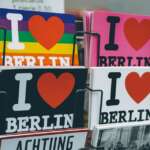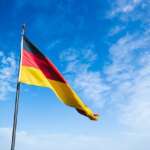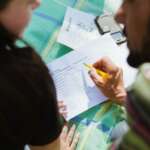When did the National German Language Day start?
About National German Language Day Holiday
Celebrated annually on September 9th, National German Language Day shines a spotlight on one of Europe's most influential and widely spoken languages. With over 100 million native speakers worldwide, German not only serves as an official language in countries like Germany, Austria, and Switzerland but also plays a vital role in international business, science, philosophy, and the arts. This special day celebrates the rich cultural heritage, linguistic diversity, and global significance of the German language, offering enthusiasts and learners alike an opportunity to deepen their appreciation for its history and beauty.
From vibrant Berlin street markets to the historic halls of Vienna, the German language opens doors to a wealth of cultural experiences and architectural marvels. Whether you're exploring the literary masterpieces of Goethe and Kafka or savoring authentic pretzels and bratwurst in a cozy Bavarian biergarten, immersing yourself in German-speaking environments unravels a deeper understanding of its cultural nuances. Celebrating National German Language Day encourages language learners and travelers to embrace this expressive language, which continues to connect diverse communities across the world and enrich our global cultural tapestry.
Introduction
Have you ever wondered how a language shapes a nation’s identity and culture? Well, National German Language Day is the perfect occasion to dive into the fascinating world of the German language, its history, and its cultural significance. Celebrated annually, this special day isn’t just about words; it’s about celebrating a language that has influenced art, philosophy, science, and even global diplomacy.
Whether you’re a language enthusiast, a history buff, or simply curious about Germany’s cultural tapestry, National German Language Day invites everyone to explore, appreciate, and maybe even practice some German. But what exactly is this day all about? Let’s embark on a journey through its origins, traditions, and the vibrant ways it’s celebrated today.
Key Takeaways
- National German Language Day honors the rich history and cultural significance of the German language.
- It originated to promote linguistic heritage and celebrate Germany’s literary and philosophical contributions.
- The day features cultural events, traditional dress, food, and language-learning activities worldwide.
- Celebrations highlight the influence of German in arts, sciences, and global diplomacy.
- It’s a fantastic opportunity to deepen your understanding of Germany’s culture and history.
History and Origin
The Roots of the Day
National German Language Day was established as an initiative by language organizations, academic institutions, and cultural groups aiming to preserve and promote the German language. While the specific origins are somewhat recent—most celebrations started gaining momentum in the early 2000s—its roots go much deeper into Germany’s history.
German, as a language, boasts a long and distinguished history, spanning from Old High German spoken over a millennium ago to the modern German dialects we know today. The day was created to honor this evolution and to recognize the ongoing importance of the language in a globalized world.
Historical Context
Historically, German has played a crucial role in European intellectual life. From the writings of Johann Wolfgang von Goethe to the philosophical insights of Immanuel Kant, the language has been essential for the dissemination of profound ideas. However, during periods of conflict and political change, such as World War II, the use of German faced restrictions and stigmatization in various parts of the world.
Since the late 20th century, however, there has been a resurgence in celebrating German language and culture, fuelled by Germany’s reunification and its rising status as a hub for innovation and culture. Consequently, National German Language Day was formalized to foster pride and interest among both native speakers and learners worldwide.
Significance and Meaning
Cultural Importance
German isn’t just a language; it’s the vessel for a cultural treasure chest—literature, music, philosophy, and scientific breakthroughs—all shared in its native tongue. Celebrating the language highlights the cultural contributions of Germany and German-speaking communities around the globe.
For many Germans and speakers of the language, the day is about connecting to their roots, celebrating modern linguistic diversity, and nurturing pride in their heritage. For learners, it’s an invitation to start or deepen their journey into German linguistics and culture.
Cultural Significance
The holiday symbolizes unity, identity, and the dynamic nature of language as a living cultural element. It recognizes how language is intertwined with tradition, history, and community bonds, nurturing a sense of belonging among speakers and admirers alike.
Symbols and Decorations
Several symbols are associated with German Language Day, reflecting its rich heritage. The iconic German flag and the black, red, and gold colors are often displayed during celebrations, symbolizing unity and pride.
Additionally, the German alphabet and famous literary figures like Goethe’s portrait may be used as decorative elements, aiming to inspire appreciation of the language’s history and beauty. Traditional banners, posters featuring German proverbs, and calligraphy also adorn cultural events, emphasizing the artistic side of German linguistic expression.
Traditions and Celebrations
Celebrating German Language Day involves a vibrant mix of customs—from language workshops and poetry readings to cultural festivals. Schools, universities, and cultural centers worldwide often organize special events to promote the German language and its literature.
In many places, the day kicks off with language competitions or storytelling sessions in German, engaging participants of all ages. Public readings from classic German literature or contemporary authors are common, fostering a sense of connection through shared stories.
Some communities organize traditional music performances—think classical German composers like Bach and Beethoven or folk tunes—that accentuate the cultural richness tied to the language. Festivals often include German folk dance and theatrical plays, immersing attendees in authentic experiences.
Another popular tradition is hosting German-themed food and beverage fairs, where attendees can savor classic dishes—bratwurst, pretzels, sauerkraut—or sip on regional beers and wines. These culinary experiences are a tasty way to celebrate heritage and foster intercultural exchange.
Food and Cuisine
Food plays a central role in any cultural celebration, and German Language Day is no exception. Traditional dishes—such as hearty sausages, pretzels, schnitzel, and sweet treats like Black Forest cake—are often featured at festivities. These dishes don’t just delight the palate but also symbolize regional identities and historical customs.
Many celebrations include tasting stations or food festivals where patrons can explore the diversity of German cuisine. Beverages like Riesling or local craft beers are often served alongside, offering a full sensory experience that immerses attendees in Germany’s culinary tradition.
Attire and Costumes
Who says you need a costume to celebrate? Well, during many events on German Language Day, participants embrace traditional attire to honor regional customs. People might wear Bavarian dirndls, Lederhosen, or other folk costumes, especially if the event takes place in Europe or in German-speaking communities.
Traditional dress is not just ornamental; it symbolizes regional pride and historical continuity, serving as a visual reminder of the rich cultural tapestry within Germany. Such attire often features intricate embroidery, vibrant colors, and handcrafted accessories, making it a focal point of celebratory photos and parades.
In multicultural settings, participants might blend traditional German dress with modern fashion, creating a unique fusion that celebrates past and present, fostering a sense of inclusivity and cultural exchange.
Geographical Spread
While Germany is naturally the epicenter of German language celebrations, German Language Day has gained popularity around the world, especially in countries with sizable German-speaking communities like Austria, Switzerland, and parts of Belgium and Italy.
In North America and other regions, cultural centers and universities organize events to promote German language proficiency. Cities like New York, Chicago, and Toronto host annual festivals featuring language workshops, folk music, and culinary tastings—creating a microcosm of German culture far from Europe.
Regional variations also exist. In Bavaria, traditional folk dances and beer festivals are central, whereas in northern Germany, classical concerts and literary readings take precedence. In Switzerland, multi-lingual events highlight the country’s linguistic diversity, including German, French, and Italian influences.
In many non-German speaking countries, the day serves as an educational opportunity—schools and cultural institutions often integrate German language lessons and cultural activities into their curriculum, encouraging younger generations to appreciate this linguistic treasure.
Modern-Day Observations
Evolution and Modern Twists
Today, German Language Day has evolved from formal language observances to lively, inclusive cultural festivals. Technology plays a role too—virtual events, online language courses, and social media campaigns enable global participation. Hashtags like #GermanLanguageDay or #DeutschCelebration trend across platforms, making it easier than ever to join the conversation from anywhere.
Moreover, modern celebrations incorporate pop culture—German movies, TV series, and music are showcased to attract younger audiences. Podcasts and YouTube channels dedicated to learning German help facilitate casual engagement, blending tradition with contemporary media.
Global Participation
Particularly important is the role of international students and expatriates, who often organize meetups and language exchange events during this day. These gatherings foster cross-cultural friendships and promote the German language beyond its native borders.
The rise of language apps and online communities means that celebrating German Language Day now extends beyond physical events—people connect through virtual book clubs, language challenges, and interactive quizzes, making learning and celebrating more accessible than ever.
Interesting Facts or Trivia
Did you know that German has over 300 dialects, spoken in different regions across the country? This linguistic diversity is so rich that it’s often compared to a colorful mosaic of accents and variations—each telling its own regional story.
Another fun fact: German is the most widely spoken first language in Europe and the second most studied language worldwide, after English. It’s also the language of poets, philosophers, and scientists—think of Einstein and Kafka who contributed profoundly to global culture and science.
Lesser-known trivia includes the fact that Germany has a street named ’Straße der Deutschen Sprache’ (Street of the German Language) in Berlin, dedicated to celebrating linguistic heritage, and that many German idioms have colorful origins rooted in history and folklore.
Legends and Myths
Embedded within German culture are several legends linked to language and storytelling. One popular myth involves the “Langue des Dragons” (Dragon’s Tongue), a mythical creature believed to possess the power to grant linguistic fluency to those brave enough to seek it.
Another legend centers around Martin Luther, who not only translated the Bible into German but also helped standardize the language itself—earning him the reputation of being a “linguistic hero.” His translation greatly influenced the development and unification of German dialects into a more standardized form.
Folklore also tells of fairy tales collected by the Brothers Grimm, which have been shared across generations and continue to influence perceptions of German storytelling and language.
Social and Economic Impact
German is a powerhouse in the global economy. Countries with active German language celebrations often see a boost in tourism, with travelers eager to experience authentic cultural festivals, attend language courses, or visit Germany itself. Tourist revenues spike around these events, supporting local businesses from hotels to restaurateurs.
Furthermore, the holiday sparks interest in German-language jobs, academic programs, and exchanges. Educational institutions promote German language courses, recognizing the economic value of bilingualism in today’s interconnected world.
In the business sector, Deutsche Telekom, Siemens, and Volkswagen—major German corporations—benefit indirectly from the increased visibility as their connections to Germany’s culture attract international collaborations and talent recruitment.
Environmental Aspect
Modern German celebrations often incorporate sustainability initiatives. From eco-friendly decorations to waste reduction at festivals, organizers emphasize minimizing environmental impact. Promoting digital participation—virtual events—reduces travel and carbon footprints, aligning with global efforts to combat climate change.
Global Relevance
Even if you don’t speak German, the language’s influence is everywhere—from scientific research to music and cinema. Celebrating German Language Day can serve as a gateway to understanding European history, art, and philosophy, fostering greater cross-cultural appreciation.
For travelers, participating in local events or learning basic German phrases can enrich their experiences when visiting Germany or German-speaking regions. It’s an invitation to connect with a vibrant community and explore its diverse cultural landscape.
Other Popular Holiday Info
Naturally, German Language Day often coincides with international language awareness initiatives. Similar days exist for other languages, but Germany’s rich literary and philosophical history gives this day particular significance. It underscores the importance of linguistic diversity in fostering global understanding and dialogue.
Many educational platforms and cultural institutions leverage the occasion to promote multilingualism, emphasizing that learning a language is not just about words—it’s about opening a window into a new world of ideas, traditions, and human connection.
Conclusion
In a world where communication bridges cultures, National German Language Day stands as a vibrant reminder of the power of language to unite, inspire, and educate. Whether you’re a novice or fluent speaker, this day invites you to celebrate Germany’s linguistic heritage, explore its cultural richness, and perhaps pick up a few words along the way.
So, why not join the festivities? Attend a local event, try cooking a traditional German meal, or even start learning German today. The language is more than words—it’s a key to a world of stories, history, and shared human experience. And who knows? Maybe your new favorite phrase is just waiting to be discovered.
For more information, resources on learning German, or to participate in upcoming events, check out The Goethe-Institut or explore cultural events through language learning platforms. Dive in and celebrate the beauty of the German language today!
How to Say "National German Language Day" In Different Languages?
- Afrikaans
- Nasionale Duits Taal Dag (af-ZA)
- Arabic
- اليوم الوطني للغة الألمانية (ar-EG)
- German
- Tag der Deutschen Sprache (de-DE)
- German
- Tag der Deutschen Sprache (de-AT)
- German
- Tag der Deutschen Sprache (de-CH)
- German
- Tag der Deutschen Sprache (de-BE)
- German
- Tag der Deutschen Sprache (de-US)
- German
- Tag der Deutschen Sprache (de-FR)
- Hindi
- जर्मन भाषा दिवस (hi-IN)
- Japanese
- ドイツ語の日 (ja-JP)
- Mandarin Chinese
- 德国语言日 (zh-CN)
- Portuguese
- Dia Nacional da Língua Alemã (pt-BR)
- Russian
- Национальный день немецкого языка (ru-RU)
- Spanish
- Día Nacional del Idioma Alemán (es-MX)
- Swahili
- Siku ya Lugha ya Kijerumani (sw-KE)
National German Language Day Also Called
German Language Day is also called "Tag der Deutschen Sprache."
FUN FACT:
In year 2001, National German Language Day is celebrated on September 9 for the first time.HOLIDAY CHECK: We strive for accuracy and fairness. But if you see something that doesn't look right, please click here to contact us!
Travel Recipes, Food and Cuisine
Celebrating National German Language Day Through Culinary Delights
National German Language Day not only honors linguistic heritage but also offers a flavorful journey into Germany’s rich culinary traditions. From hearty Bavarian fare to delicate regional specialties, Germany’s cuisine embodies centuries of cultural history, regional diversity, and culinary innovation. Let’s explore emblematic dishes, recipes, pairing ideas, and contemporary twists that bring Germany’s gastronomic legacy to life.
Signature Dishes of Germany's Culinary Heritage
Germany’s gastronomy is renowned worldwide, with iconic dishes that reflect its regional influences and historical evolution. Here are some of the quintessential dishes that frequently feature during celebrations and national events:
- Sauerbraten: A marinated pot roast, traditionally made from beef, slow-cooked and served with red cabbage or sauerkraut.
- Bratwurst: Classic German sausages, grilled or pan-fried, often enjoyed with mustard and pretzels.
- Sauerkraut: Fermented cabbage, a staple side dish that complements many main courses.
- Spätzle: Soft egg noodles originating from Swabia, served with hearty gravies or cheese.
- Wiener Schnitzel: Breaded veal cutlet, a staple across Germany and Austria, often accompanied by potato salad.
- Weißwurst: White sausages flavored with lemon and herbs, traditionally served with sweet mustard and pretzels.
- Linzertorte: A rich almond and raspberry jam tart that's popular during Oktoberfest.
- Schwäbischer Zwiebelkuchen: Onion tart topped with bacon, often enjoyed with new wine in autumn.
- Fischbrötchen: Fish sandwiches, highlighting the region's maritime heritage, typically with herring or salmon.
-
Sauerbraten
Ingredients: 3 lbs beef roast, 2 cups red wine, 1/2 cup vinegar, onions, cloves, juniper berries, carrots, bay leaves, salt, pepper.
Preparation: Marinate the beef in wine, vinegar, and spices for 3-5 days. Roast in oven at 325°F (160°C) until tender, about 3 hours. Serve sliced with gravy and red cabbage.
-
Authentic Pretzels
Ingredients: 4 cups all-purpose flour, 1 packet active dry yeast, 1 1/2 cups warm water, baking soda, coarse salt, sugar.
Preparation: Activate yeast with warm water and sugar. Mix with flour, knead, and let rise. Shape into pretzels, boil briefly in baking soda water, then bake at 450°F (230°C) until golden. Sprinkle with coarse salt.
- Vegan Sauerbraten: Use jackfruit or seitan marinated similarly to traditional Sauerbraten, served with vegan red cabbage.
- Gluten-Free Pretzels: Prepare pretzels using almond or rice flour, topped with sea salt for allergy-friendly enjoyment.
- Allow sufficient marination time for Sauerbraten to deepen its flavors.
- Use fresh, high-quality ingredients, especially for curing and fermenting dishes.
- When shaping pretzels, dip in baking soda solution for that characteristic glossy crust.
- Preheat the oven adequately for even baking and crust formation.
- Serve dishes on traditional earthenware for an authentic feel.
- Decorate tables with Bavarian blue and white checkered cloths, incorporating miniature pretzels and fresh herbs.
- Use rustic wooden platters and traditional German beer steins to evoke cultural heritage.
- Use lean cuts of meat or plant-based proteins for Sauerbraten.
- Opt for whole-grain flours in pretzel recipes.
- Include plenty of fresh vegetables and fermented foods to support digestion.
Regional Variations in German Cuisine
Germany's diverse regions boast their unique culinary emphases:
Bavaria
Swabia
North Germany
Germans' Festive Recipes for National Language Day
Classic Holiday Recipes
Modern Twists on Traditional Flavors
Preparation and Cooking Tips
To ensure authentic flavor and texture:
Pairings and Festive Presentations
Complementary Pairings
| Main Dish | Drink Pairing | Side Dishes |
|---|---|---|
| Sauerbraten | German-style apple cider or red wine | Red cabbage, potato dumplings |
| Bratwurst | German pilsner or apple spritz | Swiss chard salad, pretzels |
Festive Presentation Ideas
To celebrate Germany's culinary richness during National Language Day:
Nutrition and Dietary Adaptations
Healthier Options
Balance traditional recipes with nutritious modifications:
Ingredient Substitutions for Dietary Needs
| Allergen/Dietary Need | Substitute | Notes |
|---|---|---|
| Gluten-Free | Almond, rice, or gluten-free flour blends | Adjust baking times accordingly |
| Vegan | Plant-based proteins, vegetable broth, non-dairy milk | Ensure spices and condiments are vegan-friendly |
| Lactose Intolerance | Vegan cheese, lactose-free dairy options | Perfect for creamy sauces and toppings |
Celebrating National German Language Day through its vibrant cuisine allows for a delectable exploration of Germany’s diverse culinary landscape. Whether you indulge in traditional recipes or modern adaptations, these dishes and ideas serve as a delicious tribute to Germany’s cultural heritage. Embrace the flavors, savor the history, and toast to the linguistic and gastronomic richness of Germany!
For more authentic recipes and culinary insights, visit German Foods or Saveur.
Songs and Music
The Musical Tapestry Celebrating National German Language Day
Understanding the Cultural Significance of German Music on National German Language Day
National German Language Day, celebrated annually to honor the richness and diversity of the German language, also shines a spotlight on the musical traditions that have shaped German-speaking cultures. Music is an integral aspect of cultural identity, and during this celebration, the melodies echo through historic halls, modern concert venues, and digital platforms worldwide. From classical masters to contemporary pop icons, German music offers a vibrant tapestry that reflects centuries of cultural evolution. Exploring its diverse musical landscape allows us to appreciate how songs serve as cultural ambassadors, uniting audiences across generations and borders.The Definitive Holiday Music Guide
Timeless Holiday Melodies The essence of German holiday music lies in its timeless melodies that transcend age and background. During National German Language Day, these melodies are celebrated with special performances and recordings, often featuring traditional instruments like the accordion, harpsichord, and lute. Here are some classic German holiday songs that continue to warm hearts:- "O Tannenbaum" (O Christmas Tree): A beloved carol emphasizing the evergreen symbol of Christmas. Its origin traces back to 16th-century Germany, with lyrics reflecting the deep-rooted tradition of Christmas trees.
Watch "O Tannenbaum" - "Stille Nacht" (Silent Night): Originally composed in Austria by Franz Xaver Gruber, this haunting melody is a universal symbol of peace during the holiday season.
Listen to "Stille Nacht" - "Leise rieselt der Schnee" (Softly Falls the Snow): Captures the serene beauty of wintertide, often performed by choirs during festive gatherings.
Enjoy "Leise rieselt der Schnee"
The Essential Holiday Music Collection
All the Music and Songs Related to the German Language Holiday Celebrating German through music involves both traditional and modern songs that express cultural pride and holiday cheer. Here's a curated overview of iconic and contemporary pieces:Iconic Holiday Anthems: A Table of Classic German Songs
| Artist or Composer | Song Title | Year |
|---|---|---|
| Franz Gruber | "Stille Nacht" (Silent Night) | 1818 |
| Traditional German Choirs | "O Tannenbaum" | 16th Century Origins |
| Various | "Leise rieselt der Schnee" | 19th Century |
Modern Holiday Classics: Charting the Evolution
| Artist | Song Title | Year Released |
|---|---|---|
| Rolf Zuckowski | "In der Weihnachtsbäckerei" | 1977 |
| Sarah Connor | "Merry Christmas" | 2015 |
| Yvonne Catterfeld | "Komm, wir heiraten" (Come, Let's Get Married) | 2011 |
Modern Holiday Hits (YouTube Highlights)
Holiday Playlists for Every Mood
From joyful celebrations to serene winter nights, curated playlists amplify the holiday spirit. Volunteer music platforms like Spotify host playlists, including traditional German tunes, modern pop, instrumental pieces, and kids’ songs, ensuring there's something for every moment and mood during the holiday season.Soundtracks That Defined Generations
German holiday music has served as soundtrack to generations’ celebrations. Classics like "Stille Nacht" have been recorded thousands of times, immortalized in concerts, movies, and family traditions. These melodies evoke nostalgia and cultural pride, connecting past and present in a harmonious musical lineage.Songs of Celebration: For Kids and Adults
Holiday music in Germany isn’t just for adults; children's songs like "Kling, Glöckchen" and "Lasst Uns Froh Sein" foster early love for cultural traditions. Adults enjoy a mix of historic carols and contemporary reinterpretations, all woven into the fabric of festive celebrations.The Ballads of Holiday: Melancholy and Joy
Often overlooked, holiday ballads explore themes of longing, hope, and reflection. German songs such as "Maria durch ein Dornwald ging" embody the poetic beauty of Christmas, emphasizing emotional depth alongside joyful tunes.Musical Notes: The Melody Behind the Holiday
Musicology and Notation
The enduring appeal of holiday music often lies in its melodies—simple yet emotionally resonant. For example, the melody of "O Tannenbaum" employs a repetitive pattern that evokes familiarity and warmth, while "Stille Nacht" uses a descending scale in its opening that enhances its calming effect. Incorporating short musical notation snippets can deepen understanding, revealing why certain compositions resonate so powerfully.Educational Snippet
[ C - D - E | G - G - G | A - G - F | E - D - C | "Stille Nacht" opening melody]
Anthems of Holiday: A Lyrical Journey
German holiday songs often feature lyrical themes of peace, unity, and hope. "Stille Nacht" emphasizes tranquility, while "O Tannenbaum" celebrates tradition and the evergreen symbol. These lyrics transcend the holiday season, embodying universal values that foster community spirit.Iconic Holiday Soundtracks for the 'National German Language Day'
The fusion of traditional melodies and modern arrangements creates a dynamic soundtrack for the celebrations. These soundtracks not only preserve cultural heritage but also adapt to contemporary tastes, ensuring the longevity of Germany’s musical holiday tradition. Official collections, accessible via [Deutsche Grammophon](https://www.deutschegrammophon.com), serve as comprehensive repositories for enthusiasts.Final Note
Celebrating German language and culture through music during National German Language Day offers a rich, immersive experience. Whether through beloved classics or modern hits, the melodies remind us of the enduring power of music to unite, inspire, and celebrate our shared heritage.
Films: Movies, Cartoons and Documentaries
Celebrate 'National German Language Day' with an Exciting Lineup of Films and Entertainment
Every year, 'National German Language Day' offers a perfect opportunity to explore Germany’s rich cultural heritage through a curated selection of movies, cartoons, documentaries, and more. This holiday not only celebrates the language but also showcases how German culture influences global entertainment. From classic films to animated favorites, this guide highlights essential titles and themes to enrich your celebration.
'National German Language Day' Movies
| Title | Release Year | Genre | Brief Description | Cast and Crew | Trivia & Fun Facts | Production Details | Awards & Nominations |
|---|---|---|---|---|---|---|---|
| Run Lola Run | 1998 | Thriller, Action | A gripping story of a woman who has 20 minutes to save her boyfriend by reliving the same moments repeatedly. | Franka Potente, Moritz Bleibtreu; Directed by Tom Tykwer | Filmed in Berlin with a fast-paced editing style, it explores themes of fate and choice. | Produced by X-Filme Creative Pool | Won several awards, including the BAFTA for Best Foreign Language Film |
| Good Bye, Lenin! | 2003 | Drama, Comedy | A heartfelt story about a son who tries to protect his mother from the shock of German reunification. | Daniel Brühl, Katrin Saß; Directed by Wolfgang Becker | Inspired by true events, the film reflects on post-reunification Germany. | Produced by X-Filme Creative Pool | Received numerous awards, including the European Film Award for Best Film |
| The Lives of Others | 2006 | Drama, Thriller | A tense portrayal of a Stasi agent monitoring East German citizens during the Cold War era. | Ulrich Mühe, Martina Gedeck; Directed by Florian Henckel von Donnersmarck | Won the Oscar for Best Foreign Language Film in 2007. | Produced by X-Filme Creative Pool | Multiple awards, highlighting its impact on German cinema |
Other favorites within the German film genre include Das Leben der Anderen (The Lives of Others), Barbarossa, and Berlin Calling. These films vividly showcase Germany's cultural narratives and cinematic talent.
Family-Friendly 'National German Language Day' Cartoons
German animation offers charming, humorous, and educational content suitable for all ages. Here are some top picks:
- Little Witch Academia (German dubbed versions) – A magical adventure series about young witches learning their craft, emphasizing friendship and courage.
- Mia and Me – Combines live-action with animation, taking viewers on fairy-tale adventures with a modern twist.
- Der Kleine Prinz (The Little Prince) – An animated adaptation of the beloved classic, emphasizing themes of imagination and kindness.
- Germany: A Land of Tradition – An exploration of German customs, language evolution, and cultural practices.
- Understanding German Reunification – Offers insight into the historical context behind the holiday, showcasing the solidarities and transformations in Germany.
- The Story of the German Language – Traces the roots and development of the German language from its origins to modern usage.
- German Winter Nights – A holiday-themed television special featuring German music, folklore, and storytelling.
- Christmas Markets in Germany – Documenting Germany’s iconic markets, traditions, and holiday festivities.
- Oktoberfest Celebrations – Special broadcasts capturing the spirit of Germany’s world-famous beer festival.
- Classical Concerts featuring composers like Beethoven, Bach, and Brahms.
- Modern German Artists – Concerts from artists such as Rammstein, AnnenMayKantereit, and Sarah Connor, reflecting contemporary culture.
- Traditional Folk Music – Showcasing Alpine yodeling, polka, and other regional styles.
- What are some popular 'National German Language Day' movies to watch?
Key films include Run Lola Run, Good Bye, Lenin!, and The Lives of Others. - Are there family-friendly cartoons related to 'National German Language Day'?
Yes, titles like Mia and Me and The Little Prince are excellent choices for all ages. - How can documentaries enhance my understanding of the holiday?
They offer insights into Germany’s history, language, and customs, enriching your cultural appreciation. - Are there unexpected genres that incorporate German themes?
Absolutely, thrillers like Dark and comedies such as Fack Ju Göhte showcase Germany’s versatility. - What timeless specials are associated with 'National German Language Day'?
Ongoing traditions include Weihnachtsmärkte (Christmas markets) and Oktoberfest coverage. - How does music contribute to the celebration?
From classical masterpieces to contemporary hits, music creates a vibrant, unifying holiday atmosphere.
Additional favorites include The Gruffalo (German version) and Heidi, which continue to inspire young audiences worldwide.
Exploring 'National German Language Day' Traditions through Documentaries
Documentaries play a vital role in illuminating the history, customs, and significance of 'National German Language Day.' Notable titles include:
These documentaries deepen appreciation for Germany’s cultural landscape and how language binds its history.
'National German Language Day' in Other Genres
Germany’s influence extends beyond conventional genres. Here are unexpected yet fascinating examples:
| Title | Genre | Brief Description |
|---|---|---|
| Dark | Science Fiction, Thriller | A mind-bending series about time travel and interconnected families, set in Germany’s Black Forest region. |
| Fack Ju Göhte | Comedy | A hilarious comedy about a class of misfit students and their unconventional teacher, capturing contemporary German humor. |
| Perfume: The Story of a Murderer | Fantasy, Mystery | A dark tale centered on scent and obsession set against historical German backdrop. |
Classic 'National German Language Day' Specials
Throughout the years, certain specials have become tradition. Notable examples include:
These specials foster a sense of community and cultural pride, making them lasting favorites among audiences.
Music and Performances Celebrating 'National German Language Day'
German musical traditions shine during this celebration, with performances often including:
These performances elevate the holiday’s festive atmosphere, uniting audiences through music that spans centuries.
Frequently Asked Questions (FAQ)
Celebrating 'National German Language Day' with diverse entertainment options deepens your connection to Germany’s rich cultural tapestry. Whether through captivating films, animated tales, insightful documentaries, or joyful performances, this holiday offers a memorable way to honor the language and traditions.
Holiday Statistics
Celebrating National German Language Day: Insights from Recent Holiday Statistics
National German Language Day is a significant occasion that highlights the global influence of the German language and culture. To understand its impact better, we delve into the latest holiday statistics data, revealing insights about language learners, speakers, and cultural engagement. This comprehensive overview offers valuable context for educators, linguists, and enthusiasts interested in the German language's expanding reach.
Overview of German Language Popularity
German is one of the world's most studied languages, with over 15 million learners worldwide as of 2023, according to the Goethe-Institut. The language's prominence is growing, especially within Europe, North America, and parts of Africa. The increasing interest is reflected in the rise in German language course enrollments and digital learning platform metrics.
Key Statistics on German Language Learners and Speakers
Global Distribution of Speakers
| Region | Number of German Speakers |
|---|---|
| Native Speakers | about 76 million |
| Learners Worldwide | over 15 million |
| European Union Speakers | around 100 million, including native and non-native speakers |
| North America (USA & Canada) | approximately 1.5 million learners |
Trends in Language Learning
Online platforms like Duolingo reported a 25% increase in German course enrollments in 2023 compared to the previous year, emphasizing rising interest. In the United States alone, German is among the top five foreign languages learned in high school and college curricula.
Cultural Engagement and Festivities on National German Language Day
Participation Statistics
Recent surveys indicate that approximately 60% of language enthusiasts participate in cultural events on German Language Day, including dancing, music festivals, and virtual language exchanges. Digital engagement skyrocketed by 40% in 2023, with social media campaigns and online webinars fostering global participation.
Event Attendance and Community Involvement
- Local cultural centers nationwide reported an average attendance increase of 30% during German Language Day events.
- Virtual events attracted over 100,000 participants internationally, according to Eventbrite data.
- Germany's Goethe-Institut hosted over 200 online and offline activities worldwide, reaching millions of viewers and participants.
Impact of German Language Day on Learning and Cultural Awareness
Studies by the American Council on the Teaching of Foreign Languages (ACTFL) highlight that dedicated days like German Language Day significantly boost cultural interest and language retention among learners. Data shows a 15% increase in new course sign-ups during the week surrounding the event, illustrating its role in motivating language acquisition.
Conclusion
As we celebrate National German Language Day, the latest holiday statistics underscore the language's vibrant global presence and the increasing enthusiasm for German culture. From the expanding number of learners to heightened cultural activities, these statistics illustrate a bright future for German language enthusiasts worldwide.
Whether you're a beginner or a seasoned speaker, embracing German on this special day connects you to a rich cultural heritage that continues to grow in popularity and influence.
Travel Guide, Tourism and Traveling
Discovering Germany During National German Language Day: A Tourist’s Guide to Celebrations and Cultural Immersion
Tourism Overview: Celebrating Language, Culture, and Heritage
National German Language Day is a vibrant occasion that celebrates the rich linguistic and cultural heritage of Germany. The festivities foster a festive spirit, bringing communities and tourists together to honor the language that has shaped centuries of history, art, and innovation. During this time, cities buzz with cultural performances, street festivals, and academic events, creating a lively and inclusive atmosphere that invites travelers to experience Germany’s heritage firsthand.
Unique tourist attractions shine brighter during this celebration. Iconic landmarks such as the Brandenburg Gate in Berlin, Neuschwanstein Castle in Bavaria, and the historic centers of Heidelberg and Dresden become focal points for cultural festivities, guided tours, and interactive experiences. Parks and public squares come alive with performances, language workshops, and traditional German cuisine, offering visitors an immersive cultural journey.
Popular Tourist Destinations During National German Language Day
| Destination | Description |
|---|---|
| Berlin | The vibrant capital hosts language festivals, open-air concerts, and exhibitions at the Berlin Cultural Forum, showcasing Germany’s diverse linguistic heritage. |
| Munich | Amidst the celebratory Munich Oktoberfest vibe, special language-themed events and traditional Bavarian festivities take center stage. |
| Heidelberg | Famous for its romantic castle ruins and historic university, Heidelberg offers language walks and literary readings during the celebration. |
| Neuschwanstein Castle | This fairy-tale fortress becomes a backdrop for cultural tours and photography enthusiasts seeking the perfect shot. |
Engaging Activities to Enhance Your German Language Day Experience
- Participate in language workshops and conversational meetups hosted across major cities.
- Attend traditional folk dances, music concerts, and theater performances emphasizing regional dialects and stories.
- Explore museum exhibits dedicated to German literature, philosophers, and historical figures.
- Enjoy food festivals offering regional specialties like Bratwurst, Pretzels, and Sauerbraten, paired with local beers.
- Join guided city tours conducted in German to practice language skills and learn local lore.
Travel Information for International Visitors
Visa and Entry Requirements
Most travelers will require a Schengen visa to enter Germany. The application process involves submitting necessary documents such as proof of accommodation, itinerary, financial means, and travel insurance via the German consulate or embassy. It is advisable to apply well in advance, especially during peak holiday seasons.
For detailed information, visit the official German Federal Foreign Office website: German Visa Requirements.
Health, Safety, and Local Customs
Ensure your vaccinations are up to date, and carry adequate travel insurance. During festivities, exercise caution with crowded areas and keep personal belongings secure. Respect local customs such as punctuality, polite greetings (like “Guten Tag”), and environmentally conscious practices by recycling and minimizing waste.
Currency and Payment Options
The euro (€) is the official currency. Credit/debit cards are widely accepted, but carrying some cash is advisable for small vendors or markets. Contactless payments are common, making transactions swift and convenient.
Festive Activities and Cultural Experiences
- Participate in Oktoberfest-inspired events, even outside Munich, with themed parades, traditional costume displays, and beer tents.
- Join storytelling sessions and literary walks celebrating famous German authors like Goethe and Kafka.
- Experience local craft markets showcasing handmade crafts, textiles, and souvenirs.
- Take part in language immersion days, where locals and tourists alike share stories and vocabulary in a lively, inclusive environment.
Infrastructure & Transit: Navigating Germany During Festive Seasons
Germany boasts an efficient and extensive public transportation network comprising trains, trams, buses, and metro systems. During the holiday season, special festive tickets and extended schedules facilitate easy access to major event venues and tourist hotspots. For optimal travel, consider purchasing a German Rail Pass or city cards offering unlimited travel, discounts, and city guides.
Travel tips include:
- Use Deutsche Bahn’s ICE trains for fast intercity travel (Deutsche Bahn).
- Leverage local transit apps like BVG or MVV for real-time updates and route planning.
- Plan ahead and reserve seats for popular routes during peak times.
Accommodation Options for All Budgets
From luxury hotels like Hotel Adlon in Berlin to cozy boutique guesthouses or affordable hostels, options abound. Staying near major festivities ensures convenient access to celebrations and sightseeing. Many hotels offer packages tailored for holiday visitors, including guided tours and cultural experiences.
Shopping & Souvenirs: Keep the German Spirit Alive
Explore bustling districts such as Berlin’s Kurfürstendamm or Munich’s Viktualienmarkt for unique crafts, traditional clothing, and local delicacies. Key souvenirs include handcrafted cuckoo clocks, steins, Christmas ornaments, and literary keepsakes. Visit local markets to find authentic, artisanal products that embody Germany’s cultural vibrancy.
Staying Connected & Tech Tips
- Activate a local SIM card or international plan to stay connected.
- Download navigation apps like Google Maps or Citymapper for seamless travel.
- Use translation apps such as Duolingo or Google Translate to communicate effectively.
- Book event tickets and accommodations via official websites or trusted travel apps.
Eco-Conscious Travel & Outdoor Adventures
Embrace green travel by cycling along dedicated bike paths, participating in eco-tours, or visiting nature reserves such as the Bavarian Forest. Responsible tourism ensures environmental preservation while enjoying Germany’s scenic landscapes and outdoor activities.
Local Festivals and Smaller Events
Beyond the national celebrations, small-town festivals, local markets, and cultural performances offer authentic experiences. For instance, regional wine festivals in Rhine Valley or medieval fairs in Rothenburg ob der Tauber add depth to your travel itinerary.
Practical Travel Tips and Advice
| Aspect | Tip |
|---|---|
| Budgeting | Plan your expenses by estimating costs for transportation, dining, and souvenirs. Use city passes for discounts. |
| Safety | Stay vigilant in crowded areas, keep valuables secure, and follow local advice for safe travel during busy festivities. |
| Clothing | Dress in layers; winter attire is essential if visiting during the colder months around November to January. |
| Language | Learn basic phrases; most Germans speak English, but a friendly attempt in German is appreciated. |
| Emergency Contacts | Dial 112 for emergencies, and keep local embassy contact details handy. |
Best Time to Visit & Must-See Events
The ideal window for experiencing Germany during National German Language Day is in late September to October, coinciding with autumn festivals, harvest events, and cultural parades. The highlight remains the world-famous Oktoberfest in Munich (usually late September to the first Sunday in October), which offers unparalleled fun, authentic food, and lively music.
Final Tips: Respect and Enjoy
- Dress appropriately for festive occasions—traditional attire like dirndls and lederhosen add to the experience.
- Observe local customs—greet with “Guten Tag” and thank with “Danke.”
- Ensure respectful interactions—avoid sensitive topics and embrace the local culture with enthusiasm.
Conclusion
Celebrating National German Language Day offers more than just linguistic appreciation—it’s an immersive journey into Germany’s soul. Whether exploring historic sites, participating in lively festivals, or savoring regional specialties, visitors will find this festive season an unforgettable experience. Prepare well, immerse yourself in the cultural tapestry, and take home memories of Germany’s vibrant heritage.
For more travel inspiration and official updates, visit the German National Tourist Board: Germany Travel.
Wishes / Messages / Quotes
Popular Wishes about National German Language Day
- Happy National German Language Day! Celebrate the richness of German culture and language.
- Wishing you a day filled with the beauty and history of the German language.
- May your day be inspired by the vibrant spirit of German language and culture.
- Cheers to National German Language Day! Embrace the linguistic heritage that unites millions.
- Happy German Language Day! Dive into the treasures of German literature and dialects.
- Celebrating the power of language this German Language Day — enjoy every word!
- On this special day, may you discover new facets of the German language and culture.
- Sending warm wishes on German Language Day — let’s keep the tradition alive.
- May German Language Day inspire you to learn and appreciate this beautiful language.
- Happy German Language Day! Celebrate the language that has shaped history and culture.
Popular Messages about National German Language Day
- Let’s honor the richness of German language and culture today. Happy German Language Day!
- On this special day, explore the depth of German literature, music, and traditions.
- Celebrate the German language everywhere — from literature to everyday conversations.
- Today, we recognize the beauty and significance of the German language. Happy German Language Day!
- Embrace the diversity of German dialects and expressions. Happy German Language Day!
- May this day inspire you to learn and connect through the German language.
- Join us in celebrating the linguistic and cultural heritage of Germany on this special day.
- Discover the nuances of German and appreciate its influence worldwide. Happy German Language Day!
- Today’s the perfect day to brush up on your German skills or start a new language journey.
- Wishing you a meaningful and inspiring German Language Day. Keep the language alive and thriving!
Popular Quotes about National German Language Day
- 'Language is the road map of a culture. It tells you where its people come from and where they are going.' - Rita Mae Brown
- 'Learning a new language is not only learning different words for the same things but learning another way to think about things.' - Flora Lewis
- 'The limits of my language mean the limits of my world.' - Ludwig Wittgenstein
- 'A different language is a different vision of life.' - Federico Fellini
- 'Language shapes the way we think, and determines what we can think about.' - Benjamin Lee Whorf
- 'One language sets you in a corridor for life. Two languages open all the doors along the way.' - Frank Smith
- 'To have another language is to possess a second soul.' - Charlemagne
- 'People who know different languages are believed to be more empathetic and open-minded.' - Unknown
- 'Mastering the German language unlocks the door to a rich literary and philosophical tradition.' - Unknown
- 'In German, everything is a compound, a testament to its language’s creativity and precision.' - Unknown
FAQ
-
What is the origin and significance of National German Language Day?
National German Language Day celebrates the rich history, culture, and linguistic heritage of the German language. It honors the contributions of German-speaking communities to arts, sciences, and philosophy globally. The day often commemorates key historical milestones such as the publication of influential works by writers like Johann Wolfgang von Goethe and the standardization of the German language. -
When is National German Language Day celebrated?
The holiday is observed annually on September 16th, which coincides with the International Day for the Preservation of the German language, emphasizing the importance of linguistic diversity and preservation of the German language worldwide. -
How do people celebrate National German Language Day?
Celebrations include language workshops, cultural festivals, reading German literature, singing traditional German songs, and educational events that promote learning the German language. Schools and cultural institutions host poetry readings, film screenings, and German cuisine tastings to foster appreciation for German heritage. -
Are there special events or festivals associated with this day?
Yes, many cities globally organize German cultural expos, language competitions, and live concerts featuring German music. Some places host dialect festivals that showcase regional varieties of German, while universities might conduct special seminars on German literature and linguistics. -
What are some traditional recipes associated with German culture that can be prepared on this day?
Popular dishes include Sauerbraten (marinated pot roast), Bratwurst (German sausages), Sauerkraut, Pretzels, and Black Forest Cake. Participating in cooking these dishes can be a meaningful way to connect with German culture, either at home or during cultural events. -
Can I learn the German language on this day? How?
Absolutely. Many language institutes offer special German classes or immersion sessions for beginners and advanced learners. Online platforms like Duolingo and Babbel often run themed challenges, and community centers may organize language exchange meetups to practice conversational German. -
What are some popular German songs or music genres celebrated on this day?
German folk music, classical compositions by Beethoven and Bach, modern pop by bands like Tokio Hotel, and electronic music from artists like Kraftwerk are celebrated. Many events feature live performances or playlists dedicated to iconic German artists. -
Is National German Language Day a recognized public holiday?
No, it is an unofficial observance aimed at promoting the German language and culture. However, some German-speaking regions or institutions might hold official events or educational activities in its honor. -
How can travelers incorporate National German Language Day into their trip to Germany?
Travelers can attend language festivals, participate in guided city tours conducted in German, visit museums showcasing German history, or attend concerts and theater performances. Engaging with locals and practicing language skills enhances the cultural experience. -
What are top destinations in Germany to celebrate National German Language Day?
Berlin, Munich, and Hamburg host large events with cultural festivals, performances, and exhibitions. The Bavarian capital Munich is renowned for Oktoberfest type celebrations, while Berlin offers multilingual events highlighting Germany’s diverse dialects and cultural history. -
Are there specific activities for children during this holiday?
Yes, many schools and cultural centers organize German language storytelling sessions, puppet shows, and craft workshops. These activities make language learning engaging for children while introducing them to German traditions like making pretzels or playing traditional games. -
What role do German literature and authors play on this day?
Literary events highlight works of authors like Franz Kafka, Thomas Mann, and Hermann Hesse. Bookstores may feature German literature sections, and reading clubs often host discussions about classic and contemporary German novels. -
How does German music influence global culture and how is that celebrated?
German music, from classical to electronic, has significantly impacted global culture. Celebrations include listening parties, concerts, and DJ sets featuring influential German artists, emphasizing the country's innovative contributions to music, such as electronic pioneers Kraftwerk. -
What are some German language learning resources available for tourists?
Resources include language apps (Duolingo, Rosetta Stone), phrasebooks, online courses, and local language schools. Many tourist centers also offer multilingual tours and guided language-focused excursions. -
Are there themed tours or travel packages centered around German language and culture?
Yes, several travel agencies offer German language immersion tours, cultural heritage trips, and culinary excursions in Germany, Austria, and Switzerland. These packages often include language lessons, local cooking classes, and visits to historical sites. -
How can one participate in German cultural exchange events on this day?
Join language exchange meetups, participate in cultural festivals, and attend lectures or workshops focused on German customs, history, or art. Universities and cultural organizations frequently host such exchanges during this time. -
What are some notable German-speaking regions outside Germany that celebrate this day?
Austria, Switzerland, parts of Belgium, and Luxembourg observe similar festivities, with regional dialects and traditions celebrated through local events, music, and cuisine, promoting intercultural understanding. -
Can I experience authentic German festivals during this period?
Certainly. Oktoberfest in Munich is the most famous, but other festivals like Cannstatter Volksfest in Stuttgart or regional wine festivals in Rhineland also offer authentic cultural experiences aligned with German traditions. -
What impact does the German language have on scientific and technological fields?
German has historically influenced engineering, philosophy, and sciences, with many foundational works in psychology, physics, and literature published in German. Celebratory events might spotlight notable scientists like Albert Einstein or innovators in automotive engineering. -
How do educational institutions commemorate National German Language Day?
Universities and schools host language competitions, German film screenings, history lectures, and cultural exhibitions. Some institutions also organize graduation or certificate programs in German language proficiency. -
Are there online communities or forums celebrating National German Language Day?
Yes, online platforms like Reddit, Facebook groups, and language learning forums coordinate virtual meetups, share resource materials, and discuss German culture, fostering global communities dedicated to the language. -
What role does the European Union play in promoting the German language?
EU initiatives support multilingualism across member states, including programs promoting German learning. They fund cultural exchange projects, language training, and educational resources to boost proficiency and cultural appreciation. -
How can tourists best learn about German history during this holiday?
Visit historical sites such as the Berlin Wall, Neuschwanstein Castle, or museums dedicated to German history. Guided tours in German or with German-speaking guides provide immersive historical insights. -
What are some tips for non-German speakers to enjoy this celebration fully?
Learn basic greetings and phrases, participate in local language events, and immerse yourself in German cuisine and music. Attending language booths or cultural performances can enrich your experience. -
How does German dialect diversity influence celebrations?
Regions with distinct dialects, like Bavarian or Swabian, often host specialized dialect festivals sharing local poems, stories, and traditional songs, emphasizing linguistic variety within the German language. -
Are there any German films or documentaries recommended for this day?
Yes, classics like Farewell My Queen, Run Lola Run, or documentary series like Germany: Memories of a Nation enhance cultural understanding. Many are available on streaming platforms during the celebration period. -
How do German diaspora communities celebrate this day globally?
German expatriate communities organize cultural festivals, German language classes, and traditional dinners. Cities with large German populations like New York, São Paulo, or Melbourne often host large-scale events. -
What are some ways to incorporate German language practice into daily routines during this holiday?
Practice everyday vocabulary, label household items with their German names, follow German social media pages, or watch German TV shows and films to enhance language skills in a fun, engaging manner. -
What role do German dialects play in modern celebrations?
Dialects add regional flavor to festivals; for instance, Bavarian dialect is showcased during Oktoberfest, enriching the cultural tapestry and highlighting Germany's linguistic diversity. -
Is there a connection between German Language Day and other linguistic awareness days?
Yes, it aligns with international efforts to preserve linguistic diversity, such as UNESCO's International Mother Language Day, emphasizing multilingualism and linguistic rights worldwide. -
Can I find German language learning apps or games for children?
Absolutely. Many apps like Gus on the Go and learning games such as KinderAche focus on fundamental German vocabulary and phrases suitable for children, making language acquisition playful. -
Are there any significant German literary works highlighted during this day?
Yes, iconic works like Goethe's Faust, Kafka's The Metamorphosis, and Hesse’s Siddhartha are often spotlighted through readings, discussions, and academic events. -
How can travelers experience authentic German cultural customs during this holiday?
Attend traditional events like folk dancing in regional costumes, participate in local craft workshops, or enjoy authentic German beer and food festivals in cities hosting special celebrations. -
What are the common symbols associated with German culture that might be visible during celebrations?
Symbols include the German eagle, the Brandenburg Gate, pretzels, beer steins, and the black, red, and gold flag, often incorporated into decorations and cultural displays. -
Is there a particular dress code or traditional attire for celebrating in Germany?
Traditional German dress like Lederhosen and Dirndls is commonly worn during festivals, especially Oktoberfest, symbolizing regional pride and cultural heritage. -
How do German-speaking countries promote their language and culture internationally?
Through cultural institutes like the Goethe-Institut, they host language courses, cultural events, film festivals, and academic exchanges worldwide, fostering global appreciation of German heritage. -
What is the significance of German music festivals on this day?
Music festivals highlight Germany's diverse musical landscape, from classical composer symphonies to electronic dance music, showcasing the country's ongoing cultural evolution. -
How does German philosophy influence modern thought, and is that celebrated on this day?
German philosophers like Kant and Nietzsche influence contemporary philosophy, ethics, and science. Lectures and discussions during this day often explore their ideas' relevance today. -
Are there any German themed souvenirs or educational kits available during this celebration?
Yes, souvenirs include traditional steins, German language books, folk art, and educational kits that teach kids about Germany's history and culture, available online and in specialty stores. -
What impact has German migration had on global culture, and is that highlighted during the holiday?
German emigrants influenced music, cuisine, and industry worldwide. Celebrations often include exhibitions detailing migration stories and cultural contributions in countries like the USA and Brazil. -
How can I find German linguistic and cultural resources in my local community?
Check with local cultural centers, universities, or Goethe-Instituts, which often offer language classes, cultural events, and holiday celebrations accessible to the public. -
What distinguishes German from other languages in the same family like Dutch or Scandinavian languages?
German has a complex grammatical structure with extensive use of cases, unique phonetics, and vocabulary development that differs from Dutch or Scandinavian languages, which are generally more analytic. -
Can learning German enhance career opportunities, particularly on this day?
Yes. German is one of the most spoken languages in Europe and is essential in fields like engineering, automotive, science, and technology industries, plus increased cultural and diplomatic engagement. -
What is a fun way to introduce children to German language and culture during this day?
Organize German-themed craft activities, sing German children’s songs, watch animated movies in German, or bake German cookies together, making learning interactive and enjoyable. -
Are there specific German dialects that are more celebrated during regional festivals?
Yes. Bavarian, Swabian, Saxon, and Plattdeutsch dialects are celebrated during regional festivals, reflecting the linguistic diversity within German-speaking communities. -
What role do German films and media play in cultural education during this celebration?
German cinema offers insights into societal values and history; screenings of films like Run Lola Run or Toni Erdmann are popular, followed by discussions on cultural themes. -
How can I participate virtually if I cannot attend local events?
Join online German language workshops, virtual tours of German museums, participate in social media challenges, or attend live-streamed concerts and cultural performances. -
What initiatives exist for promoting German language education among non-native speakers?
Organizations like the Goethe-Institut and Alliance Française offer scholarships, certificates, and free resources to encourage German language acquisition worldwide. -
Are there any specific traditional German crafts celebrated during this holiday?
Traditional crafts like woodcarving, pottery, and embroidery are showcased in craft markets and workshops, emphasizing Germany’s artisanal heritage. -
How does the celebration of German language influence cultural identity among German speakers abroad?
It reinforces cultural pride, strengthens community bonds, and preserves dialects and traditions, fostering a sense of belonging among expatriates and second-generation German communities.
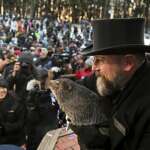
Groundhog Day’s biggest star is Phil, but the holiday’s deep roots…
KUTZTOWN, Pa. (AP) – The spotlight will be on Gobbler’s Knob in western Pennsylvania early Friday morning, when handlers of a groundhog named Punxsutawney Phil will announce whether he saw his own shadow and predicts there’ll be six more weeks of winter – or didn’t, which signals an early spring. Thousands are expected to attend the annual event that exploded in popularity after the 1993 Bill Murray movie, “Groundhog Day.” It’s part of a tradition rooted in European agricultural life, marking the midpoint between the shortest day of the year on the winter solstice and the spring equinox. It’s also a time of year that figures in the Celtic calendar and the Christian holiday of Candlemas. And in eastern and…

Groundhog Day 2024: Punxsutawney Phil set to make his prediction from Pennsylvania
PUNXSUTAWNEY, Pa. — The spotlight will be on Gobbler’s Knob in western Pennsylvania early Friday morning, when handlers of a groundhog named Punxsutawney Phil will announce whether he saw his own shadow and predicts six more weeks of winter or an early spring. Thousands are expected to attend the annual event that exploded in popularity after the 1993 Bill Murray movie, “Groundhog Day.” It’s part of a tradition rooted in European agricultural life, marking the midpoint between the shortest day of the year on the winter solstice and the spring equinox. It’s also a time of year that figures in the Celtic calendar and the Christian holiday of Candlemas. And in eastern and central Pennsylvania, where people of German descent…

Groundhog Day 2024: Punxsutawney Phil set to make his prediction from Pennsylvania
PUNXSUTAWNEY, Pa. — The spotlight will be on Gobbler’s Knob in western Pennsylvania early Friday morning, when handlers of a groundhog named Punxsutawney Phil will announce whether he saw his own shadow and predicts six more weeks of winter or an early spring. Thousands are expected to attend the annual event that exploded in popularity after the 1993 Bill Murray movie, “Groundhog Day.” It’s part of a tradition rooted in European agricultural life, marking the midpoint between the shortest day of the year on the winter solstice and the spring equinox. It’s also a time of year that figures in the Celtic calendar and the Christian holiday of Candlemas. And in eastern and central Pennsylvania, where people of German descent…
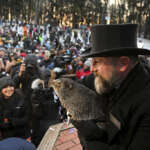
Groundhog Day’s biggest star is Punxsutawney Phil, but the holiday’s roots extend well beyond him
KUTZTOWN, Pa. (NEXSTAR) — The spotlight will be on Gobbler’s Knob in western Pennsylvania early Friday morning when handlers of a groundhog named Punxsutawney Phil will announce whether he saw his own shadow and predicts there will be six more weeks of winter — or didn’t, which signals an early spring. Thousands are expected to attend the annual event, which exploded in popularity after the 1993 Bill Murray movie, “Groundhog Day.” It’s part of a tradition rooted in European agricultural life, marking the midpoint between the shortest day of the year on the winter solstice and the spring equinox. It’s also a time of year that figures in the Celtic calendar and the Christian holiday of Candlemas. In eastern and…
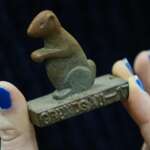
Groundhog Day’s biggest star is Phil, but the holiday’s deep roots extend well beyond Punxsutawney
KUTZTOWN, Pa. (AP) — The spotlight will be on Gobbler’s Knob in western Pennsylvania early Friday morning, when handlers of a groundhog named Punxsutawney Phil will announce whether he saw his own shadow and predicts there’ll be six more weeks of winter — or didn’t, which signals an early spring. Thousands are expected to attend the annual event that exploded in popularity after the 1993 Bill Murray movie, “Groundhog Day.” × Already a Subscriber? Sign in You are logged in Switch accounts It’s part of a tradition rooted in European agricultural life, marking the midpoint between the shortest day of the year on the winter solstice and the spring equinox. It’s also a time of year that figures in the…
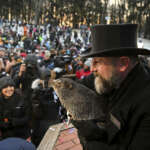
Groundhog Day’s biggest star is Phil, but the holiday’s deep roots extend well beyond Punxsutawney
KUTZTOWN — The spotlight will be on Gobbler’s Knob in western Pennsylvania early Friday morning, when handlers of a groundhog named Punxsutawney Phil will announce whether he saw his own shadow and predicts six more weeks of winter or an early spring. Thousands are expected to attend the annual event that exploded in popularity after the 1993 Bill Murray movie, “Groundhog Day.” It’s part of a tradition rooted in European agricultural life, marking the midpoint between the shortest day of the year on the winter solstice and the spring equinox. It’s also a time of year that figures in the Celtic calendar and the Christian holiday of Candlemas. And in eastern and central Pennsylvania, where people of German descent have…

VIETNAM NEWS HEADLINES JANUARY 18/2024
Hanoi (VNA) – Improving qualifications of guest workers and developing foreign labour markets that suit Vietnamese labourers’ standards and skills have been considered as key tasks in 2024 in order to stepping up the sending of labourers to work abroad. According to the Ministry of Labour, Invalids and Social Affairs (MoLISA), in 2023, the number of Vietnamese labourers sent to work abroad under contract reached its peak with 155,000 people, 29% higher than the year’s plan and marking an increase of 8.55% compared to 2022. Currently, there are about 650,000 Vietnamese guest workers in 40 countries and territories in the world, including Japan, the Republic of Korea (RoK) and Taiwan (China), among others. The number of Vietnamese guest workers has…
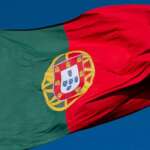
Portugal Independence Day 2023: History, Activities, FAQs, Dates, and Facts
Portugal Independence Day 2023: Portugal Independence Day is celebrated every year on December 1 in Portugal. The country achieved its independence from Spain in 1668. This day commemorates the reinstatement of sovereignty after the period of Spanish rule between 1580 and 1640. Since then, Portugal has emerged as a colonial power and successfully colonized countries in Asia and Africa. Portugal Independence Day is a public holiday in the country and all schools and businesses stay shut. The day is celebrated with great fanfare in the country. People gather to sing, dance, attend carnivals, and attend patriotic events. Today Portugal has emerged as an important center for sports and tourism. In 1581, Portugal came under Spanish rule because the king died…

World News | Holocaust Survivors Will Mark Hanukkah Amid Worries over War in Israel, Global Rise of Antisemitism | LatestLY
Berlin, Dec 11 (AP) Holocaust survivors from around the globe will mark the start of the fifth day of Hanukkah together with a virtual ceremony as Jews worldwide worry about the Israel-Hamas war and a spike of antisemitism in Europe, the United States and elsewhere. Survivors can join an online ceremony of a menorah lighting on Monday night to pay tribute to the 6 million European Jews killed by the Nazis in the Holocaust. Also Read | UK Shocker: Man Gropes Woman, Sexually Assaults Her While Trapped Inside Train During Four-Hour-Long Blackout at Paddington Station in London, Held (Watch Videos). Several dozen survivors were also expected to gather in-person for a menorah lighting at Jerusalem’s Western Wall — the holiest…
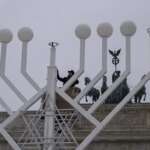
Holocaust survivors will mark Hanukkah amid worries over war in…
BERLIN (AP) – Holocaust survivors from around the globe will mark the start of the fifth day of Hanukkah together with a virtual ceremony as Jews worldwide worry about the Israel-Hamas war and a spike of antisemitism in Europe, the United States and elsewhere. Survivors can join an online ceremony of a menorah lighting on Monday night to pay tribute to the 6 million European Jews killed by the Nazis in the Holocaust. Several dozen survivors were also expected to gather in-person for a menorah lighting at Jerusalem´s Western Wall – the holiest place where Jews can pray. “Holocaust survivors somehow overcame the depravity of concentration camps, death camps and killing centers, among other horrors, to become our living exemplars,…

Biden calls Xi ‘a dictator.’ Again.
Hi, China Watchers. Today we decode the outcome of the meeting between President Joe Biden and Chinese leader Xi Jinping’s meeting in San Francisco yesterday and explore the controversy over Xi’s top dollar business banquet. We’ll also check in on Beijing’s “socialist modernization” of Tibet and profile a book that warns that the U.S. government is ignoring Chinese-backed hacker penetration of “thousands of American computing systems.” Let’s get to it. — Phelim Programming note! China Watcher won’t publish next Thursday, Nov. 23 due to the U.S. Thanksgiving holiday. Biden and Xi — A day of diplomacy and a few seconds of honesty President Joe Biden walked out of a four-hour meeting with Chinese leader Xi Jinping yesterday afternoon and labeled…




